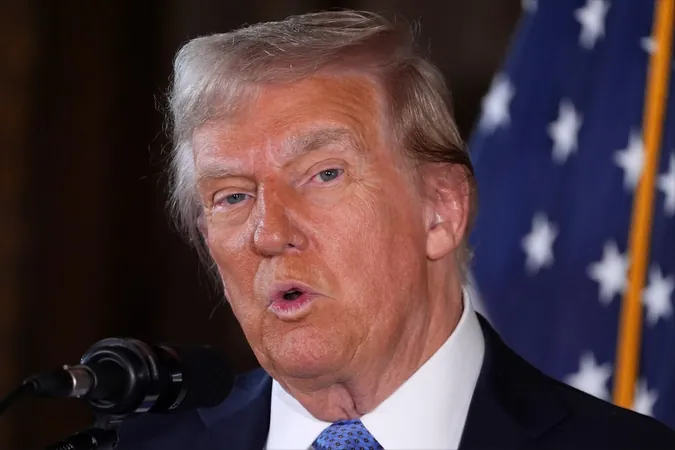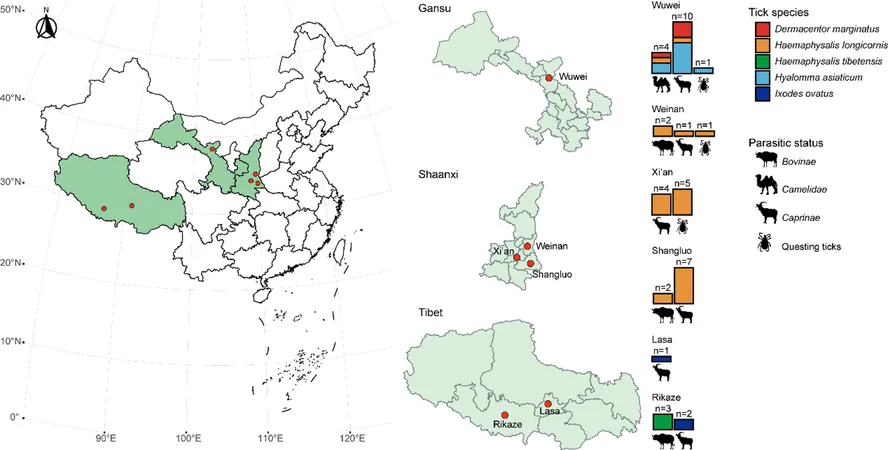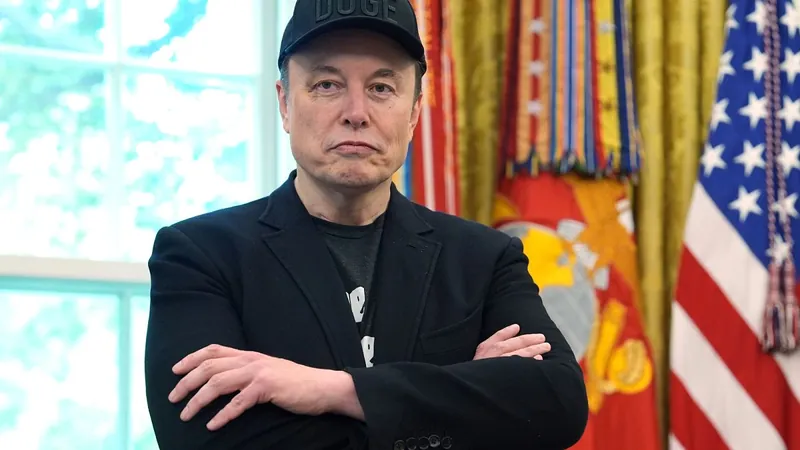
Trump Considering National Economic Emergency Declaration to Revamp Tariff Strategy – What This Means for the U.S. Economy
2025-01-08
Author: Jacob
In a surprising turn of events, U.S. president-elect Donald Trump is reportedly contemplating the declaration of a national economic emergency. This would provide a legal basis to implement sweeping universal tariffs against both allies and adversaries, as reported by CNN, citing unnamed sources.
Under the International Economic Emergency Powers Act (IEEPA), Trump could effectively manage imports during a declared national emergency. This may be his tool for initiating a new and aggressive tariff program, with sources indicating that the idea of such a declaration has been actively discussed.
A key promise of Trump’s campaign was a universal tariff of at least 10% on all imports entering the U.S. Following his election victory last November, he took to social media, asserting that upon his inauguration on January 20, he would immediately sign documents to impose a staggering 25% tariff on goods from Mexico and Canada unless they took substantial action to curb illegal immigration and the flow of fentanyl.
Trade experts believe this proposed action could likely involve invoking the IEEPA. Interestingly, Trump previously used the IEEPA in 2019, threatening a 5% tariff on Mexican imports which was later withdrawn after negotiations led to improved border security measures from Mexico.
During his first term, Trump didn’t shy away from tariffs, imposing measures of up to 25% on around $370 billion worth of Chinese goods. Now, he is hinting at a potentially drastic new approach with a proposed 60% tariff on all Chinese imports. Recently, Trump denied reports suggesting that his team was reconsidering this plan due to inflation concerns, insisting that his vision for U.S. trade policies remains intact.
In addition to the IEEPA, Trump may leverage Section 301 of the Trade Act of 1974, used in the past to back tariffs against China, and Section 232 of the Trade Expansion Act of 1962, which supports tariffs viewed as essential for national security—previously used for steel and aluminum tariffs.
The possible invocation of these strong trade laws has sparked debates among trade lawyers and economists about the potential repercussions for the economy. Many are wary that significant tariffs could lead to increased prices for consumers and retaliatory measures from other nations.
As the Trump administration prepares to navigate the complexities of international trade, the implications of this potential national emergency declaration could alter the U.S. economic landscape fundamentally. Will this strategy invigorate the American economy or lead to turbulent trade relations? Stay tuned, as developments unfold.









 Brasil (PT)
Brasil (PT)
 Canada (EN)
Canada (EN)
 Chile (ES)
Chile (ES)
 Česko (CS)
Česko (CS)
 대한민국 (KO)
대한민국 (KO)
 España (ES)
España (ES)
 France (FR)
France (FR)
 Hong Kong (EN)
Hong Kong (EN)
 Italia (IT)
Italia (IT)
 日本 (JA)
日本 (JA)
 Magyarország (HU)
Magyarország (HU)
 Norge (NO)
Norge (NO)
 Polska (PL)
Polska (PL)
 Schweiz (DE)
Schweiz (DE)
 Singapore (EN)
Singapore (EN)
 Sverige (SV)
Sverige (SV)
 Suomi (FI)
Suomi (FI)
 Türkiye (TR)
Türkiye (TR)
 الإمارات العربية المتحدة (AR)
الإمارات العربية المتحدة (AR)